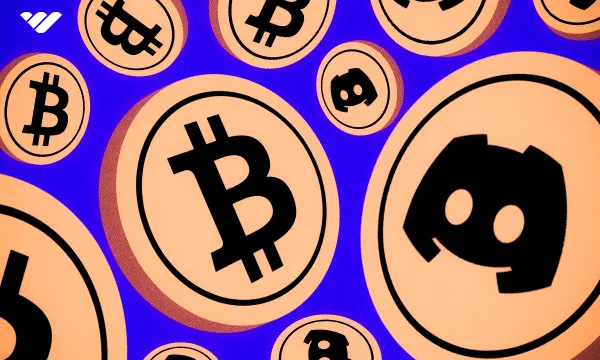The world of investment and finance proffers up a multitude of often complex instruments, and the revered futures contract is one of the most popular. While even its name can be daunting to a layman, an understanding of futures contracts and how they work can elevate your investment and trading knowledge to a great degree.
In this article, we’ll be demystifying the venerable futures contract and giving you a simple breakdown on how it works, along with what the benefits and drawbacks of investing in futures contracts are.
History of Futures Contracts
Like many common forms of investment, futures contracts can be traced back hundreds of years. Formal markets for futures were first established in the 1800’s, specifically the Dojima Rice Exchange in Japan in 1730, but they had been traded in London up to two hundred years prior to that.
These early commodities markets were created to shield both producers and wholesalers from risk. Thanks to the up-front fixing of the price, rice farmers could work on their crops with the peace of mind that a collapse of prices at harvest time wouldn’t affect them at all.
Likewise, the wholesalers on the other side of these contracts would be hoping that the price of rice appreciates at the time they take delivery, meaning that they could resell with even higher profits than if they’d bought at market.
How do Futures Contracts Work?
As the word ‘contract’ implies, a futures contract is a legally binding agreement between two parties to buy or sell a particular asset at a predetermined price on a specified date in the future.
This predetermined price is attractive to the producers of goods as it provides a guarantee of a certain level of compensation for their labor irrespective of market fluctuations. It does the same thing for buyers, giving them potential upside if the market picks up.
However, modern futures traders aren’t actually interested in taking delivery of the goods mentioned in the contract. Once written into existence, a futures contract becomes an asset in itself. As a futures trader, you’re hoping to anticipate market moves and speculate on them via the vehicle of futures contracts, buying the contract and then selling it at a higher price before it expires.
In fact, the futures market saw a seminal moment in April 2020, when crude oil futures dropped into negative territory. This was because producers kept supplying oil despite low prices but oil storage was filling up fast.
Suddenly, traders realized they had no more storage to take delivery on their contracts, and began panic-selling in order to avoid tankers of oil showing up at their door.
That event underlines the crucial time-sensitivity of futures contracts. Derivatives like options simply expire worthless when their time’s up, but failing to close or roll over a futures position at expiration may lead to unwanted physical delivery or cash settlement. If you don’t have empty oil tanks ready and waiting, you might be in a spot of bother!
What Futures Contracts Can You Trade?
Now that you know how futures contracts work, you’re probably wondering what sort of trades you might be able to make. Crude oil futures are one of the most popular, and commodities futures like gold, silver, corn, coffee, and natural gas are just a few of the most liquid markets.
Outside of the various metals, grains, and soft commodities, you can even find futures in various financial instruments. Interest rate futures are extremely common, as are stock index futures and even currency futures.
The diversity of available futures might mean that you can take advantage if you have any industry-specific knowledge. You may know very little about interest rates, for instance, but that won’t stop you from making a figurative killing in livestock and meat or grain futures if you come from a farming background.
Pros of Trading Futures Contracts
Before you attempt to trade futures contracts, it’s important to have a good idea about the benefits and drawbacks of doing so. Here’s a quick look at the benefits of trading futures contracts:
#1. Liquidity
Futures markets have been around for decades, and feature extremely strong liquidity. What this means is that you can generally enter and exit positions quickly. As we’ve already mentioned, this can be extremely important—unwanted physical delivery can be a huge problem for futures traders who’re not looking to do more than buy and sell the contracts themselves.
#2. Regulation
Futures contracts are highly regulated, meaning that market participants have to follow certain rules. Futures in the U.S. generally fall under the purview of the U.S. Commodity Futures Trading Commission (CFTC), an agency devoted to protecting the public from fraud, manipulation, and other abusive practices.
#3. Diversification
Many investors seek to build diversified portfolios, but the definition of diversification itself is traditionally quite narrow. A split between stocks and bonds may cover most industries, but adding metal, grain, and even livestock futures can add entirely new dimensions of exposure to your portfolio.
#4. Leverage
Leverage is a tool that, while risky, can allow traders to make big profits using a smaller investment. Futures contracts aren’t the only area where you can use leverage and trade on margin, but it’s one of the most popular.
Cons of Trading Futures Contracts
Now that the benefits of trading futures are clear, let’s take a look at the other side of the coin and explore the potential drawbacks.
#1. Risk
Futures came into being because they insulated producers from risk, but that means someone else has to accept that risk. As a futures trader, this means you. It isn’t the riskiest sort of investment out there, but once a contract starts to slip into losing territory, losses can begin to accumulate fast.
#2. Time-Sensitivity
Aside from fixed price, a futures contract’s expiration date is its most important feature. Given what can happen when a futures contract expires, you generally want to trade it away before then, even if it means realizing a loss.
#3. Volatility
Many asset classes can be volatile these days, but thanks to the proliferation of leverage alongside markets being vulnerable to adverse geo-political events, futures can be extremely volatile. This can be profitable, but could also lead to unexpected losses.
How to Start Trading Futures Contracts
If you’re interested in getting started with trading futures contracts or simply want to add futures to your portfolio, it’s not too hard to get started.
The first stop is generally a brokerage. You may already use a broker if you’ve got an investment portfolio or do some day trading, but if not, register for an online brokerage account or check if these stock trading apps also offer futures.
Once you’re signed up, you may have to apply for permission to trade futures. Some brokers hold this feature back, but getting access isn’t too difficult—it’s generally just a matter of filling out a questionnaire proving your understanding of finance concepts including futures contracts.
When you’ve found a venue to trade futures contracts and are set up for trading, you’ll also want to familiarize yourself with the different contract parameters in addition to price and expiry. Here they are at a glance:
- Unit of measurement
- Mode of settlement
- Quantity of goods covered by the contract
- Currency in which the contract is quoted
- Standard, grade, or quality when applicable
It may also be a good idea to check if your broker offers a paper trading account. Paper trading lets you practice with simulated money rather than your own cash, allowing you to gain a feel of the futures market’s ebbs and flows and get used to the ins and outs of the futures trading interface.
Key Takeaways
Futures contracts can seem complex at first glance but they play an important role in modern markets and offer an excellent way to diversify an investment portfolio. There can be a significant amount of risk when trading futures, including that of unwanted delivery if you don’t watch out for contract expiration, but they can be a lucrative trading option if used right.
➡️ Whether you’re just interested in getting into futures or a pro looking to take your trading game to the next level, you’re bound to find the right product or community for you right here on Whop.
📚 To find out more about futures contracts, trading strategies, or anything else related to investing, just head on over to Whop.com and check out our top rated trading communities.
🏆 Read next: Top 10 Best Trading Discord Servers [2023]


![Top 20 Best Forex Trading Discord Servers [2024]](/blog/content/images/size/w600/2024/05/Top-X-Best-Forex-Discord-Servers.webp)

![Top 25 best trading Discord servers [November 2024]](/blog/content/images/size/w600/2023/08/trading-discord-servers-large.png)
![Top 15 best options trading Discord servers [November 2024]](/blog/content/images/size/w600/2024/05/Top-12-Best-Options-Trading-Discord-Servers-2024.webp)